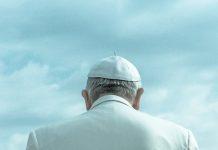Cardinal Turkson urges fighting the culture of indifference, especially in times of the pandemic.
Newsdesk (July 12, 09:02 AM Gaudiumpress) – The IV World Meeting of Popular Movements (EMMP) was held via videoconference format on July 9, 2021.Cardinal Peter Turkson, Prefect of the Vatican Dicastery for Promoting Integral Human Development said that, change comes from a life lived in harmony with creation, under the sign of integral ecology, which respects the rights of indigenous peoples while pursuing the common good. The next video conference is scheduled for September.
World Meeting of Popular Movements is an initiative of Pope Francis to create an “encounter” between Church leadership and grassroots organizations working to address the “economy of exclusion and inequality” by working for structural changes that promote social, economic and racial justice. The World Meeting of Popular Movements (WMPM) is designed to bring these communities together with faith leaders from across the globe.
The culture of encounter
The videoconference brought together popular movements and their delegates from around the world to discuss the impact of Covid-19 on the poorest and most marginalized workers and the dilemmas facing humanity today. The poor include junk collectors, recyclers, street vendors, fashion designers, artisans, fishermen, farmers, construction workers, miners, workers of salvaged companies, all types of cooperatives, workers from popular sectors, Christian workers belonging to different sectors and professions, workers from neighbourhoods and villages… who are practitioners of the culture of encounter.
Among the issues discussed were the three ‘t’s (in Spanish stand for “tierra, trabajo y techo,” or the 3 fundamental rights of “land, work and roof (housing).” Pope Francis has encouraged popular movements to strive. Discussions started with reflecting on the impact of the virus on the most humble and marginalized workers.
Representatives of popular movements who spoke at the virtual conference were from countries such as the US, Spain, the Philippines, India, Argentina, Brazil and Gambia. Cardinal Turkson urged them and everyone for “a change of heart” and action, which come from having encountered the pain of the fragile and marginalized who suffer injustice.
Placing the economy at the service of the person
Cardinal Turkson urged “to put the economy at the service of the person” to make it “just.” “The poor,” he said, “not only suffer injustice but also struggle against injustice.” Cardinal Turkson pointed out that the challenges cannot be faced alone. Solidarity among the victims of social and economic injustice is the foundation of a popular culture that promotes integration, equality, justice and peace. He noted that popular movements are making history by carrying out a struggle against structural causes of poverty and injustice, with courage, intelligence and tenacity and not with fanaticism and violence, as the Holy Father has indicated.
Cardinal Turkson stated that popular movements push for change to defend and create decent jobs through inclusion and promoting a community and social economy that protects the lives of communities in which solidarity prevails over profit. “We fight against the culture of indifference,” and “as we pursue our own dignity, we also protect the dignity of others,” he added.



































